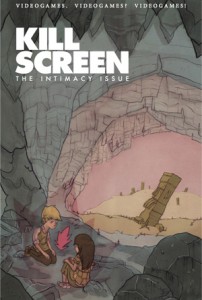 Not that kind of New Criticism!
Not that kind of New Criticism!
Back in April, I whined about book reviews online being too long! Gosh: they’re long. I said that if people wrote book reviews offline for an online readership, the reviews were wordy and long and took their time getting to their points. And but then if they were written online for an online readership, they were flashy and brief and substanceless.
I asked anyone to point be toward substantive books reviews under 400 words. I didn’t originally use the word substantive and I apologize now for not going with a plainer word like meaningful.
At any rate, look what @legaultd posted to Twitter, which @angermonsoon rewteeted, which is how it made its way to my eyeballs:
Infinity Blade is a game about iteration, about retreading old ground, about the small changes that surface across endless repetitions.
It operates around a simple conceit: the God King, the game’s strange central figure, has seeded a bloodline of warriors. A warrior approaches the God King’s fortress, fights his way to the throne room, and dies at the God King’s blade. He never leaves the castle. His son comes to avenge him, and the process repeats.
Each repetition ends the same way: with a son, wearing his father’s armor, carrying his father’s weapon, approaching the place of his father’s death.
The gameplay is predictable. Each bloodline is a series of fights. Each fight is a series of gestures. The enemies are variations on a theme. The spells are incremental improvements. We do the same things, over and over.
Infinity Blade may be a commentary on the grind of gaming, the relentless churn of killing and harvesting to gain new equipment so that we can kill and harvest more effectively.
But to continue playing is to live the same life a little bit better, a little bit smarter, a little bit longer than the time before.
That’s under 200 words if you can believe it, and look at how much it has to say about Infinity Blade itself and video games more generally.
Here’s a link to the review, published in Kill Screen. I don’t know if it’s the magazine itself or its writer, J. Nicholas Geist, but they’ve got my attention. As @legaultd said in his tweet of the review: “This is what electronic writing should be doing all the time.”
Yes.
UPDATE: Ha! So apparently I missed the “Begin Bloodline 2” button at the bottom of the screen, which begins through some javascript witchery (even the essay’s source code‘s a good read) to revise the review right before the reader’s eyes, inserting clarifications and more details. Through subsequent bloodlines the piece swells to 317 words before gradually deleting most of its sentences while keeping its argument fully intact! Damn it! It’s something incredible.